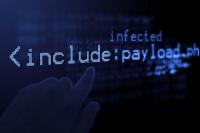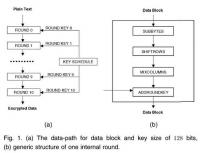-
In FBI versus Apple, government strengthened tech’s hand on privacy
The ongoing fight between Apple and the FBI over breaking into the iPhone maker’s encryption system to access a person’s data is becoming an increasingly challenging legal issue. This case is very specific, and in this narrow case, Apple and law enforcement agencies will likely find a compromise. However, this question is not going away anywhere. With the “Internet of things” touted as the next big revolution, more and more devices will capture our very personal data – including our conversations. This case could be a precedent-setting event that can reshape how our data are stored and managed in the future.
-
-
Hackers hold hospitals’ medical data hostage
Hackers attacked several hospitals in Germany with ransomware – locking medical files and demanding ransom payment for releasing the encrypted data. The blackmailing of hospitals by encrypting their medical file has become a growing problem around the world. In California, for example, a Hollywood hospital earlier this month had to pay about $17,000 in the digital currency bitcoins to hackers in order to regain access to medical files.
-
-
“Magic wand” to improve healthcare, cybersecurity
Wireless and mobile health technologies have great potential to improve quality and access to care, reduce costs. and improve health. But these new technologies, whether in the form of software for smartphones or specialized devices to be worn, carried or applied as needed, also pose risks if they’re not designed or configured with security and privacy in mind. Researchers have developed a digital “magic wand” to improve home healthcare and to prevent hackers from stealing your personal data.
-
-
Pro-ISIS hackers issue threats to Facebook, Twitter founders
Pro-ISIS hackers have released a video threatening the founders of Facebook and Twitter in retaliation for the two social media giants’ campaign to take down ISIS-related accounts. The threat was issued in a 25-minute video, uploaded on Tuesday to social networks by a group calling itself “Sons Caliphate Army” – which experts say is the latest “rebrand” of ISIS’s supporters online.
-
-
Do-it-yourself encryption
Sending e-mails is easy. However, until now a lot of know-how has been required to securely encrypt them. This is bound to change: Deutsche Telekom and the Fraunhofer Institute for Secure Information Technology (SIT) in Darmstadt will be making encryption easy — with a popular encryption named Volksverschlüsselung. The Volksverschlüsselung software provides the required keys and configures the existing e-mail programs for the users to be able to encrypt and decrypt.
-
-
Cybersecurity “Rosetta Stone” marks two years of success
Two years ago this month, the National Institute of Standards and Technology (NIST) released a document designed to help strengthen cybersecurity at organizations that manage critical national infrastructure such as banking and the energy supply. Produced after a year of intensive collaboration with industry, the Cybersecurity Framework is now a tool used by a wide variety of public and private companies and organizations, from retail chains to state governments.
-
-
More Americans support Justice Dept. than Apple in locked iPhone dispute
As the standoff between the Department of Justice and Apple Inc. continues over an iPhone used by one of the suspects in the San Bernardino terrorist attacks, 51 percent say Apple should unlock the iPhone to assist the ongoing FBI investigation. Fewer Americans (38 percent) say Apple should not unlock the phone to ensure the security of its other users’ information; 11 percent do not offer an opinion on the question.
-
-
Passwords, privacy and protection: can Apple meet FBI’s demand without creating a ‘backdoor’?
The point of encryption is to make decryption hard. However, hard does not mean impossible. The FBI could decrypt this data, with sufficient effort and computational power, and they could do this with no help from Apple. However, this route would be expensive, and would take some time. In effect, what they’re requesting of Apple is to make their job easier, cheaper and faster. Ultimately, how this matter gets resolved may depend more on the big-picture question of what privacy rights we as a society want for the data we record on our personal devices. Understanding the technical questions can inform this discussion.
-
-
How mobile ads leak personal data
The personal information of millions of smartphone users is at risk due to in-app advertising that can leak potentially sensitive user information between ad networks and mobile app developers, according to a new study.
-
-
Detecting hidden malicious ads hidden in apps
The danger of acquiring a computer virus or spyware used to come with the risk of visiting the dark, sketchy corners of the Internet. But now trusted and harmless smartphone apps like MyFitnessPal and Candy Crush carry their own risks. As more and more people own smartphones, the number of malicious ads hidden in apps is growing — tripling in just the past year.
-
-
Sharing password data safely to bolster cybersecurity
An unfortunate reality for cybersecurity researchers is that real-world data for their research too often comes via a security breach. Now computer scientists have devised a way to let organizations share statistics about their users’ passwords without putting those same customers at risk of being hacked.
-
-
Apple refuses to comply with court order to help FBI investigate San Bernardino terrorists
Apple’s encryption technology has placed the company at the heart t of the privacy vs national security debate, as the company said it would defy a court order which requires to company to help investigate the San Bernardino attack by helping the FBI crack the code of an iPhone , Syed Rizwan Farook, one of terrorists, used. The U.S. government, stunned by Apple’s refusal to help in investigating a terrorist attack on U.S. soil, persuaded a court to issue on order compelling Apple to cooperate in the investigation.
-
-
Cybercrime’s true toll

Cyber thieves who steal credit and debit card numbers are making millions of dollars in profits, fueling a global criminal enterprise marked by the high-profile data breaches of major companies such as Target and Home Depot. A criminologist offers one of the first scientific studies to estimate cybercrime profits, saying the findings should be a wakeup call for consumers and law enforcement officials alike.
-
-
Russian govt. behind attack on Ukraine power grid: U.S. officials
Obama officials said that Russian hackers were behind a December 2015 cyberattack on Ukraine’s power grid. The attack caused power outages and blackouts in 103 cities and towns across Ukraine. Elizabeth Sherwood-Randall, deputy Energy Secretary, made the comments to a gathering of electric power grid industry executives.
-
-
Encryption prevents FBI from cracking San Bernardino attackers’ phone

U.S. law enforcement agencies have been unable to access a telephone used by the two Islamist attackers in the San Bernardino shooting, FBI director James Comey said Tuesday. Comey stressed that the post-Snowden end-to-end encryption some technology companies are now offering their customers make it impossible for law enforcement to learn more about terrorists and criminal networks, even after terrorist or criminal acts have been committed and even if a court has approved access to the information.
-
More headlines
The long view
What Does Netflix’s Drama “Adolescence” Tell Us About Incels and the Manosphere?
While Netflix’s psychological crime drama ‘Adolescence’ is a work of fiction, its themes offer insight into the very real and troubling rise of the incel and manosphere culture online.
Confronting Core Problems in Cybersecurity
It’s common for governors and mayors to declare a state of emergency and activate the National Guard in the aftermath of hurricanes, tornadoes, and other natural disasters. But last month, officials in Minnesota took these steps in the wake of a major cyberattack on the city of St. Paul —a testament to how disruptive these attacks have become.
Voting from Your Sofa Is Secure Enough – but Will It Be Allowed?
A new electronic voting system developed at NTNU can withstand attacks from quantum computers, meaning digital elections can be conducted securely, even in the future.
